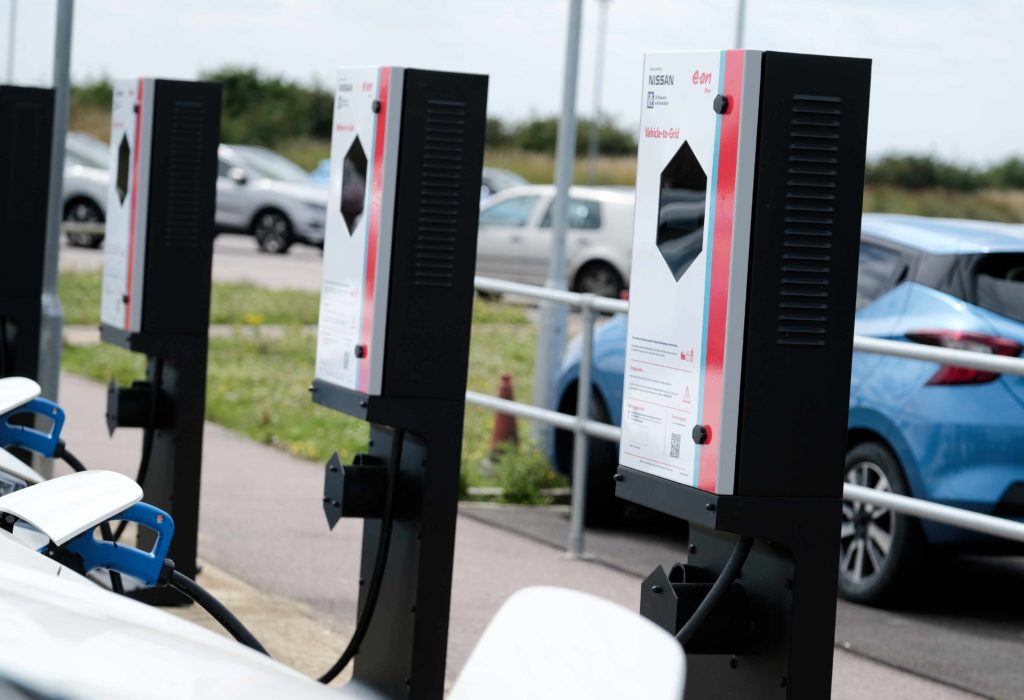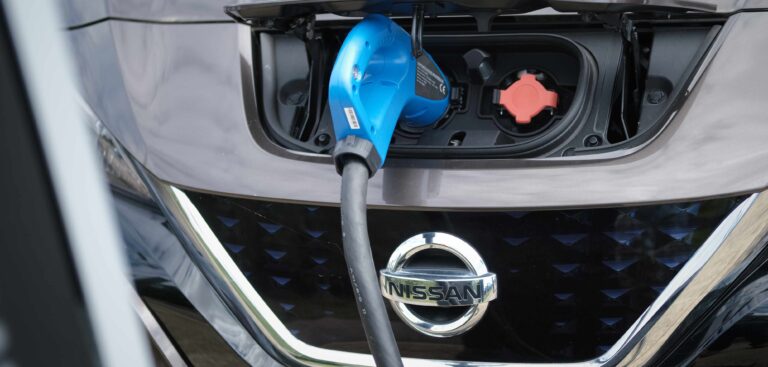E.ON and Nissan have successfully deployed 20 vehicle-to-grid (V2G) chargers as part of a trial to demonstrate how the electric powertrain could play a role in supporting the UK power grid.
The installation at Nissan’s European Technical Centre in Cranfield is the first in a large-scale V2G trial, co-funded by Innovate UK. The project intends to test and demonstrate how storing and sharing electricity in vehicles’ batteries can generate additional revenue for participants as well as support the power grid.
V2G technology enables electricity to flow in both directions, to and from electric vehicle batteries, allowing energy stored in the battery to be sold back to the grid when demand for power is high. Vehicles can then charge when demand is lower or renewable generation is high, reducing reliance on fossil-fuelled generation, giving V2G a role in carbon reduction efforts. The technology can also release capacity on the electricity networks which distribute power around the country.
Luke Ellis, V2G program manager with E.ON UK, said, “Now that we’ve proven the technology’s capabilities with these 20 installs, we’re a step closer to bringing it to market. This is about commercialising a vehicle’s bi-directional charging capabilities, with clear advantages for businesses either already with a fleet of electric vehicles or those that are ready to make the transition to electric, and demonstrates how E.ON is providing solutions for customers that will help make the air cleaner.”
Vehicles compatible with the technology being used in this project are currently the Nissan e-NV200 and the Nissan Leaf.
As well as E.ON and Nissan, the V2G project consortium (known as e4Future) includes Newcastle University, Imperial College London, Northern Powergrid, UK Power Networks and National Grid ESO. The V2G platform used on the trial utilizes a combination of E.ON’s existing Virtual Power Plant software as well as a charger operating system provided by E.ON’s e-mobility partner, Virta.
The project is part of the V2G program, funded by the Department for Business, Energy and Industrial Strategy and the Office for Low Emission Vehicles (OLEV), in partnership with Innovate UK. Part of UK Research and Innovation (UKRI), Innovate UK is the UK’s innovation agency investing in science and research.



